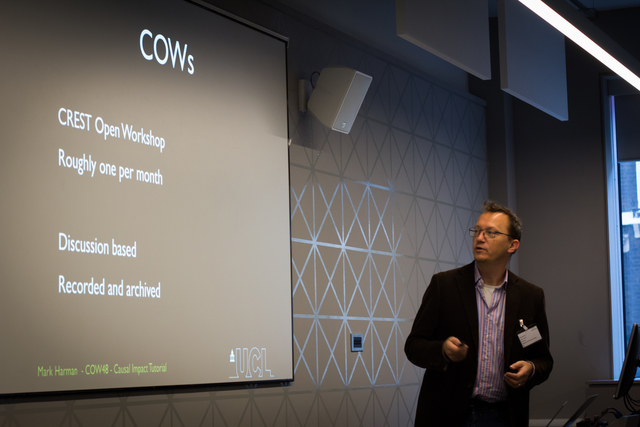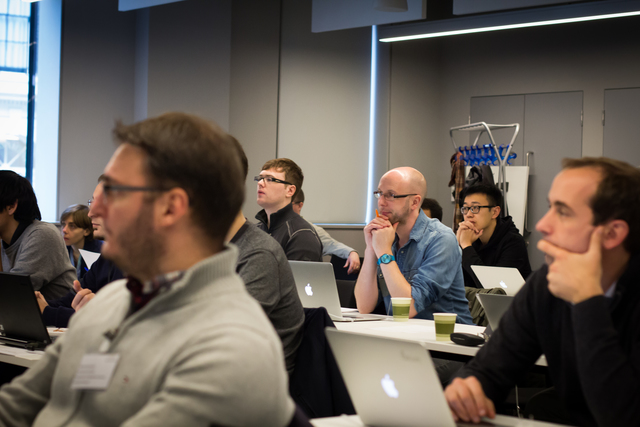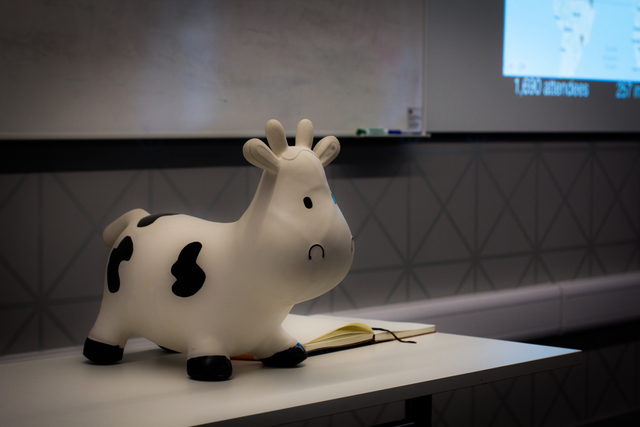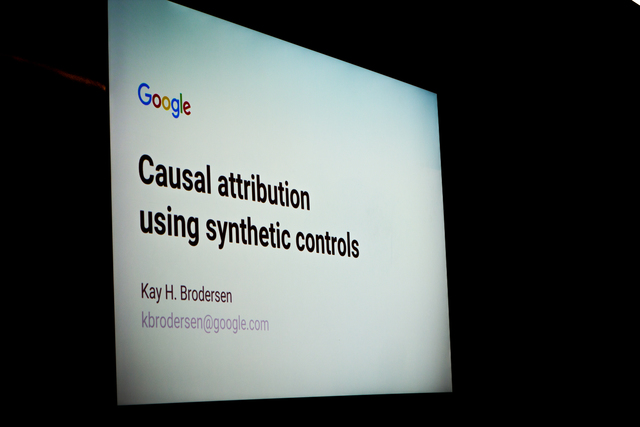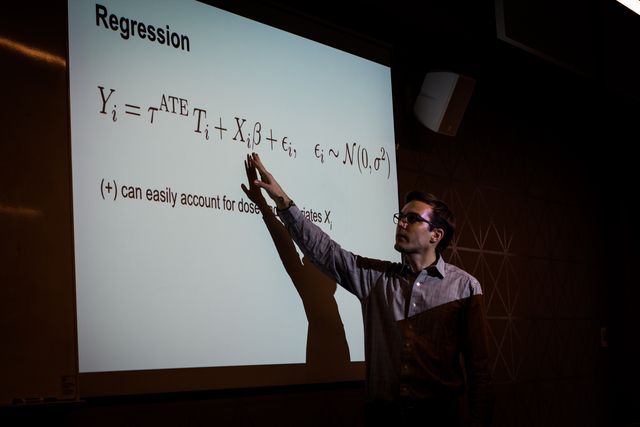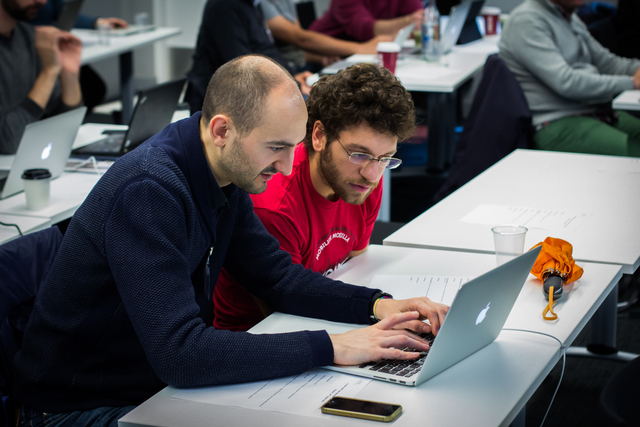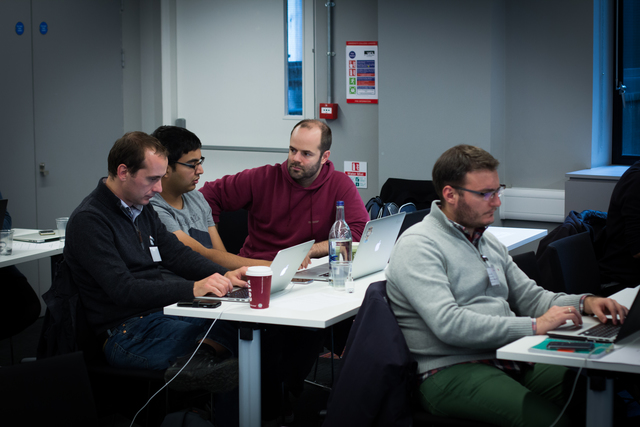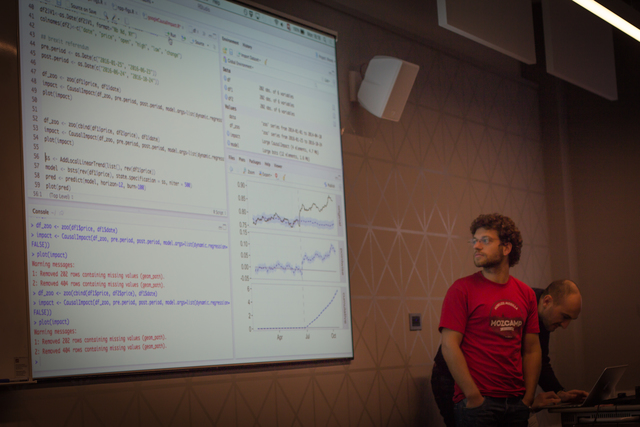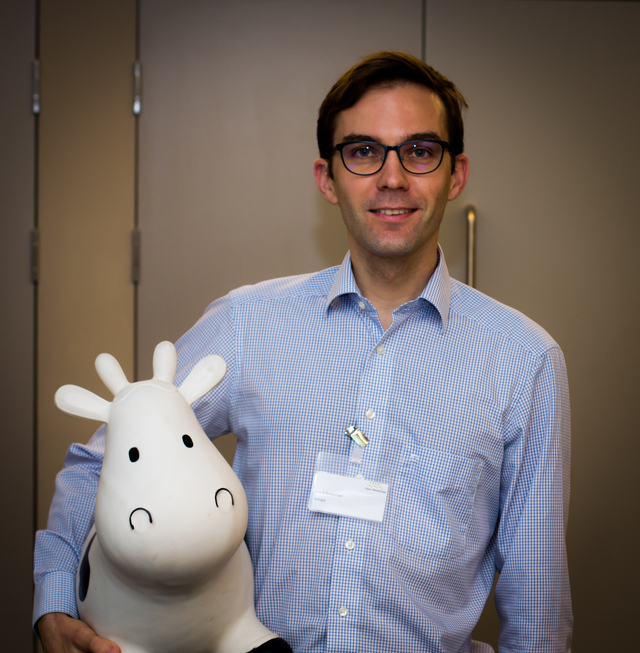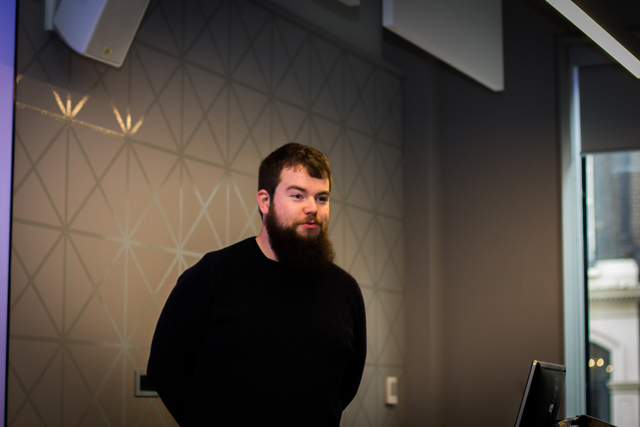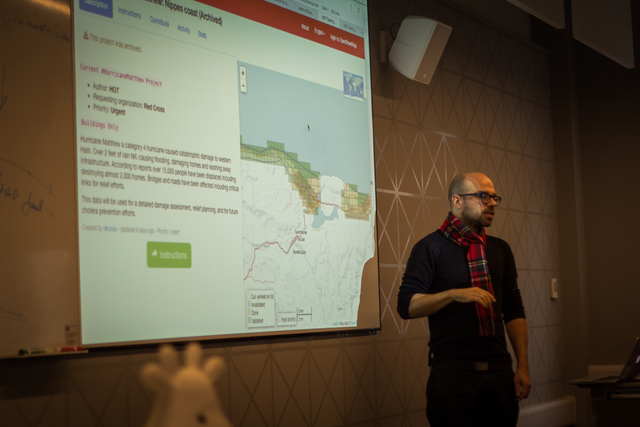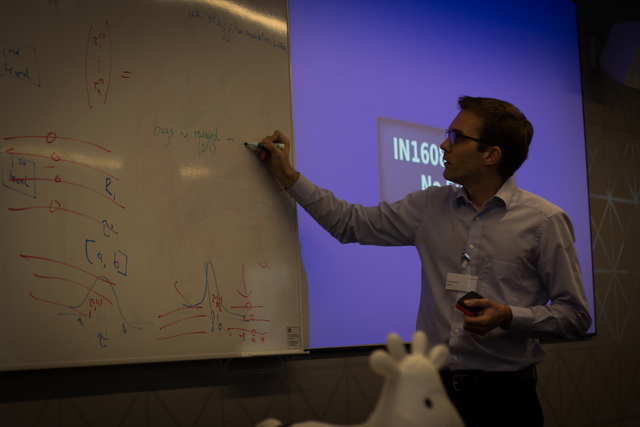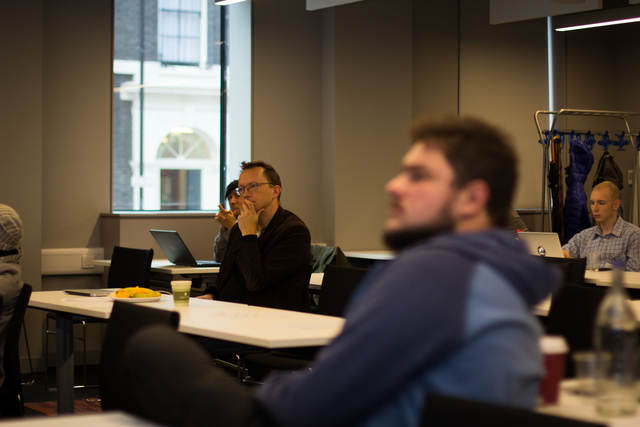The 48th CREST Open Workshop - Tutorial on Causal Impact
Date: 24th and 25th October 2016
Venue: G01, 66-72 Gower Street, University College London, WC1E 6EA
Overview: "Correlation is not causation" is a widely-observed scientific maxim. Unfortunately, this observation is highly correlated with hypersensitive scientific cautiousness; it may even have caused it in some cases. We are naturally reticent to speculate about cause, but in order to more deeply understand many phenomena, including those of importance to software engineers, we need techniques that allow us to talk about causes. This CREST Open Workshop will be a tutorial on Causal Impact Analysis, featuring a one-day foundational tutorial from Kay Brodersen (Google Inc. and ETH), who introduced time series models of causal impact, followed by a shorter quarter-day tutorial by William Martin (CREST UCL) on applications of Brodersen's approach to Windows Phone Store. The two tutorials will be followed by an open discussion on applications of causal impact analysis to software engineering problems.
Attendees at this tutorial who would like to do some background reading may find the following references helpful. It is not necessary to have read any these before the workshop; Kay will start with the assumption that people don't come with prior reading and background knowledge. Nevertheless, these references may help to provide follow-up after the workshop, and, potentially, to provide initial set of questions for the discussion before the workshop:
• The standard starting point is the package vignette:
https://google.github.io/CausalImpact/CausalImpact.html
• The original paper is fairly dense, so I'm just including it here for reference:
http://research.google.com/pubs/pub41854.html
• Others have published nicely written summaries, one of them is here:
• There are lots of third-party tutorials, one of them is great in that it also shows how to tie in Google Analytics results:
http://www.lunametrics.com/blog/2016/04/21/compare-actual-vs-predictive-data-with-ga-causalimpact/
Schedule
Day 1
10:00 Pastries
10:30 Into – Mark Harman
11:00 Kay Brodersen – Tutorial session 1: Overview of causal inference
12:30 Lunch
13:30 Kay Brodersen – Tutorial session 2 & 3 : Inference techniques, controls and existing technical infrastructure in R (if you can come with a laptop with R installed this will be a benefit; if not, then be ready to buddy up with someone who has R on their laptop.)
15:30 Break
16:00 Kay Brodersen – Tutorial session 4: dataset analysis and practical “hands on”
17:30 Wrap up
18.00 close of day 1
18:30 Dinner (the cost of dinner is included as complementary for all attendees, and will be hosted at China city, an excellent local Chinese restaurant)
Day 2
09:30 Pastries
10:00 William Martin: using causal impact analysis to understand impactful at releases in Google Play and Windows Phone Store.
11:30 Break
12:00 Workshop session 1: discussion, question and answer, hands on and free time to be used to explore directions for causal impact in software engineering.
13:00 Lunch
14:00 Workshop session 2: More discussion, question and answer, hands on and free time to be used to explore directions for causal impact in software engineering.
15:30 Wrap up
16:00 Close
Registration is now closed
This workshop is supported by the following sponsors:
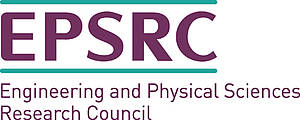

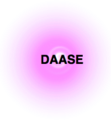
Registered attendees:
1. Mark Harman, CREST Centre, SSE Group, Department of Computer Science, UCL, UK
2. Matheus Paixao, CREST Centre, SSE Group, Department of Computer Science, UCL, UK
3. Kay H Brodersen, Google
4. William Martin, CREST Centre, SSE Group, Department of Computer Science, UCL, UK
5. Federica Sarro, CREST Centre, SSE Group, Department of Computer Science, UCL, UK
6. Hana Chockler, Computer Science, Kings College London, UK
7. Anand Ashok Sawant, Delft University of Technology, Delft, Netherlands
8. Georgios Gousios, Delft University of Technology, Delft, Netherlands
9. Alberto Bacchelli, Delft University of Technology, Delft, Netherlands
10. Earl Barr, CREST Centre, SSE Group, Department of Computer Science, UCL, UK
11. Jens Krinke, CREST Centre, SSE Group, Department of Computer Science, UCL, UK
12. Lingbo Li, CREST Centre, SSE Group, Department of Computer Science, UCL, UK
13. Siti Omar, CREST Centre, SSE Group, Department of Computer Science, UCL, UK
14. Carlos Gavidia, CREST Centre, SSE Group, Department of Computer Science, UCL, UK
15. Zheng Gao, CREST Centre, SSE Group, Department of Computer Science, UCL, UK
16. Huayao Wu, Nanjing University, China
17. Afnan A. Al-Subaihin, CREST Centre, SSE Group, Department of Computer Science, UCL, UK
18. Hector D Menendez, CREST Centre, SSE Group, Department of Computer Science, UCL, UK
19. Nicolas Gold, CREST Centre, SSE Group, Department of Computer Science, UCL, UK
20. Nadarajen Veerapen, Computing Science and Mathematics, University of Sterling, UK
21. Fabio Daolio, Computing Science and Mathematics, University of Sterling, UK
22. Ken Reid, Computing Science and Mathematics, University of Sterling, UK
23. Michael Li, Computing Science and Mathematics, University of Sterling, UK
24. Jie Zhang, Institute of Software Engineering, Peking University, Beijing, China
25. Bill Langdon, CREST Centre, SSE Group, Department of Computer Science, UCL, UK
26. Michael Epitropakis, Department of Management Science, Lancaster University, UK
27. Ke Mao, CREST Centre, SSE Group, Department of Computer Science, UCL, UK
28. Yue Jia, CREST Centre, SSE Group, Department of Computer Science, UCL, UK
29. Bobby Bruce, CREST Centre, SSE Group, Department of Computer Science, UCL, UK
30. Nassim Seghir, CREST Centre, SSE Group, Department of Computer Science, UCL, UK
31. Chaiyong Ragkhitwetsagul, CREST Centre, SSE Group, Department of Computer Science, UCL, UK
32. David Clark, CREST Centre, SSE Group, Department of Computer Science, UCL, UK
33. David White, CREST Centre, SSE Group, Department of Computer Science, UCL, UK
34. Saheed Busari, SSE Group, Department of Computer Science, UCL, UK
35. Marco Castelluccio, The University of Naples Federico II, Naples, Italy
36. Arman Eshaghi, UCL Institute of Neurology, UK
37. Martin Dittus, ICRI Cities, Department of Computer Science, UCL, UK
38. Rishabh Mehrotra, Media Futures, Department of Computer Science, UCL, UK
39. Saúl Vargas, Mendelay Ltd
40. Julija Bainiaksinaite, Department of Computer Science, UCL, UK
41. Andreas Koukorinis, Financial Computing and Analytics, Department of Computer Science, UCL, UK
42. Chen Zhang, Department of Computer Science, UCL, UK
43. Anna Zaremba, Financial Computing and Analytics, Department of Computer Science, UCL, UK
44. Jack Shipway, SSE Group, Department of Computer Science, UCL, UK
Photos:
